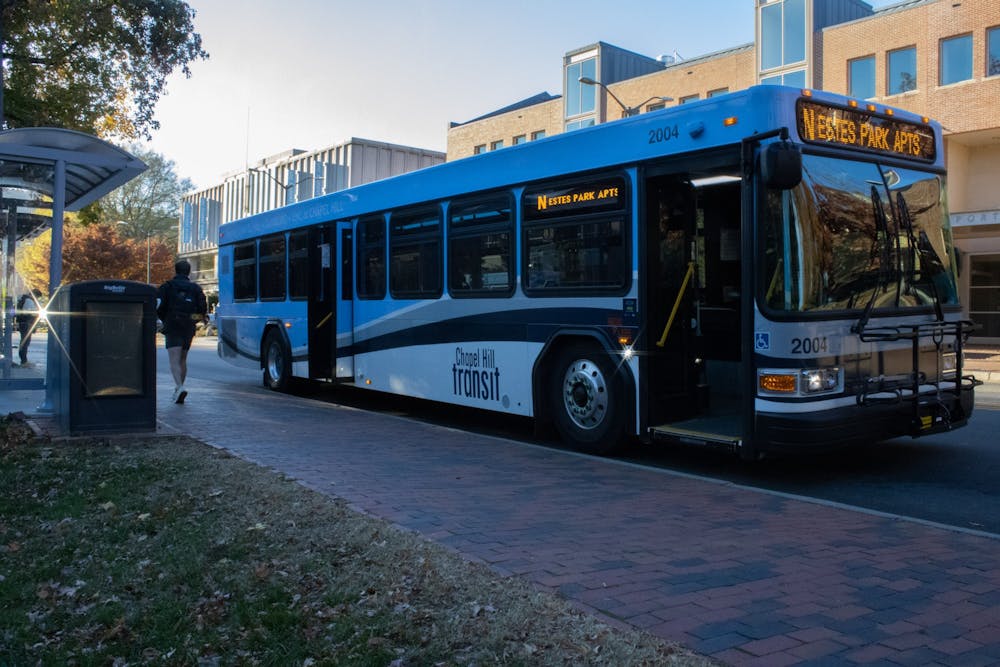Throughout the 2021 fall semester, Chapel Hill Transit and Chapel Hill-Carrboro City Schools have struggled to address shortages among bus drivers.
There has consequently been a general reduction in transit operations at UNC and increased ride times from 45 minutes to one hour and 15 minutes for students on CHCCS buses. With Chapel Hill Transit’s temporary service changes from late September still in effect today, many wonder what progress has been made in meeting the demand for new drivers.
Brad Johnson, transportation director at CHCCS and Brian Litchfield, director of Chapel Hill Transit, said the bus driver shortage crisis has complex origins. However, they emphasized the impact of COVID-19, which has altered the labor market for drivers by shifting driver demand.
“We were trending in this direction pre-pandemic,” Johnson said. “The pandemic just exacerbated the problem.”
Johnson added that the shift toward working and shopping from home made working for other companies — notably Amazon and FedEx — more attractive for commercial drivers. As a result, he said the market for drivers has become far more competitive, with several transit services fighting to attract a limited number of applicants.
“Prior to the pandemic, Chapel Hill Transit would average between 400-500 applicants with little to no advertising in a year,” Litchfield said. “Over the last 10 months, we have received around 100 applicants with aggressive advertising.”
Another issue for transportation services has been the extensive training required for drivers.
“Even if we start getting folks to apply, it will still take a couple months to get them trained up,” Mayor Pro Tem Michael Parker said. “You need a commercial driver’s license to drive a bus — we will help them get those licenses, but it takes time.”
Additionally, not all applicants become employees. Litchfield said only one in 20 applicants become members of the team, which is not enough to replace losses in front-line and technical-level staff at Chapel Hill Transit.



